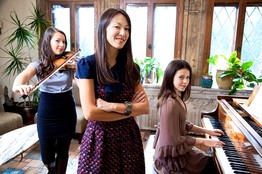NOTEWORTHY WEDNESDAY!

“Parents teach their children how to swim, how to ride a bicycle and how to drive. Should they also teach their teenagers how to drink responsibly?
The volatile issue is seldom discussed at alcohol-awareness programs. But some parents do quietly allow their teens to have wine or beer at home occasionally, figuring that kids who drink in moderation with their family may be less likely to binge on their own.
Research also suggests that alcohol can do long-term harm to developing brains. In the late teens and early 20s, the brain is developing its adult shape, pruning away unused connections and forming permanent pathways, particularly in areas involved in planning, decision-making and impulse control.
Brain scans have shown that heavy drinking—20 drinks or more a month—in adolescents can create changes in the frontal cortex, the hippocampus and white matter, leading to decreased cognitive function, executive function, memory, attention and spatial skills, researchers at the University of California-San Diego wrote in the Journal of Clinical EEG and Neuroscience in 2009.
via Should Parents Let Their Teenage Children Drink at Home? – WSJ.com.”
Teenage drinking…what do you think is the role of parents in educating their teenagers about alcohol use ?
This issue was one that I faced a few years back and I chose to be very proactive in alcohol use education.
What I knew to be true was:
- that alcohol was in the high school world as were drugs.
- there were parents who were allowing parties at their homes and were taking away the keys so that kids could not leave and drive.
- my thoughts about this were pretty plain and simple … they were acting irresponsibly and encouraging alcohol abuse.
The high schools at the time were asking athletes to sign a pledge stating that they would not engage in alcohol use and drugs while they were playing competitive sports. However, there was no way to enforce this requirement as there was no drug testing…the kids and parents knew this so the pledge was essentially worthless.
I was only aware of one high school in our sports conference whose football team players were randomly drug screened. This screening program was paid for by a private sponsor so it was not coming out of the pockets of local taxpayers. It was featured in Newsweek at the time and was considered controversial. At least there was some “teeth” in the pledge and athletes were held accountable. The program was not a punitive one…students were offered counseling if they tested positive for illegal substance.
So what was my approach to teenage alcohol?
Well, I knew first hand about alcoholism and the havoc that it plays on families…one of my maternal uncles suffered from this disease. He was a “father figure” in my family and had stopped drinking after retirement. He spoke freely about his problems with alcohol.
I decided it was time for field trip to the local liquor store with my teenagers . What we found was very enlightening.
There of course was the beer that most teenagers drink but then there was an entire aisle devoted to “teenage tastes“.
In that aisle we found, wine coolers, pre-mixed drinks, mudslides, lemon drops…all the sweet tasting beverages which seem to satisfy the teenage “sweet tooth” along with their desire to experiment with alcohol.
So what did we discuss afterwards…
- the seriousness of drinking
- the responsibilities of drinking.
- the effects of drinking “shots” such as vodka vs. the “juice and milkshake” type drinks
- mixing alcohol and beer
- the legality of drinking before age 21
- the health effects of drinking
I told my kids that they would probably have to make choices about alcohol use.
I told them that they should feel comfortable asking me questions at any time.
I told them I would answer their questions and then give them my opinion.
I told them if they ever found themselves in a “situation” while they were out that they could call me or their dad and we would pick them up no questions asked.
I told them we would discuss the “situation” the next day when we were all rested.
I told them that I wanted them to promise to “NEVER DRINK AND DRIVE” or allow anyone to drive them who had been drinking this included parents.
I warned them of driving home from babysitting jobs with a parent that had been drinking.
The things that I do know for sure about this serious issue:
- teenage drinking is a problem that is not going away.
- parents need to decide what their stance is prior to the high school years
- they need to figure out how they will help their kids make serious choices
This could make a “life and death” difference.



